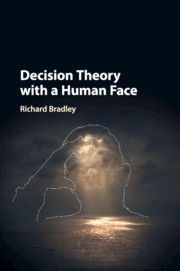Book contents
- Frontmatter
- Dedication
- Contents
- List of Figures
- List of Tables
- Preface
- Introduction
- PART I RATIONALITY, UNCERTAINTY AND CHOICE
- PART II PROSPECTIVE RATIONALITY
- 5 Rational Belief and Desire
- 6 Conditional Attitudes
- 7 Conditionals and the Ramsey Test
- PART III FACING THE WORLD
- PART IV RATIONALITY WITHIN BOUNDS
- Appendix: Proofs
- Bibliography
- Index
6 - Conditional Attitudes
from PART II - PROSPECTIVE RATIONALITY
Published online by Cambridge University Press: 11 October 2017
- Frontmatter
- Dedication
- Contents
- List of Figures
- List of Tables
- Preface
- Introduction
- PART I RATIONALITY, UNCERTAINTY AND CHOICE
- PART II PROSPECTIVE RATIONALITY
- 5 Rational Belief and Desire
- 6 Conditional Attitudes
- 7 Conditionals and the Ramsey Test
- PART III FACING THE WORLD
- PART IV RATIONALITY WITHIN BOUNDS
- Appendix: Proofs
- Bibliography
- Index
Summary
We not only take attitudes to prospects, we also take conditional attitudes to them: attitudes on the hypothesis, supposition or assumption that something is true. On the assumption that I will not be tired tonight, I would rather go out than stay in. On the supposition that interest rates will rise, I believe that housing prices will fall. And so on. Conditional attitudes, like their unconditional counterparts, come in grades, a feature that is crucial to the role they play in decision making. I might find the prospect of going to the beach desirable, conditional on it being a sunny day, but not at all so, conditional on it being rainy. Whether I should go to the beach depends not only on the relative probability of sun and rain but also on the relative strengths of these conditional desires. One aim of this chapter is to identify the different kinds of suppositions involved in forming graded conditional attitudes, to propose rationality conditions that are characteristic of them and then to examine the implications of these conditions. A second is to explore the role that conditional attitudes play in hypothetical reasoning. Throughout I will assume the conceptual framework developed in the previous chapter.
First, two points should be made about what conditional attitudes are not. A common view is that conditional beliefs and desires given some β are dispositions to believe and desire conditional on β being true or on coming to believe that β. But this view is not quite right. While we should expect there to be a close relation between our conditional attitudes and the attitudes we take when we learn that the condition in question holds, sometimes this relation is disturbed by the conditions under which the learning occurs. I would prefer, were I confronted by a bully, that I would act bravely rather than run away. If I were confronted by a bully, however, I would (I predict) prefer to run. I believe that, were I to drink a lot, my driving ability would be impaired. Were I to drink too much, however, I would believe my driving to be better than ever.
- Type
- Chapter
- Information
- Decision Theory with a Human Face , pp. 89 - 108Publisher: Cambridge University PressPrint publication year: 2017

